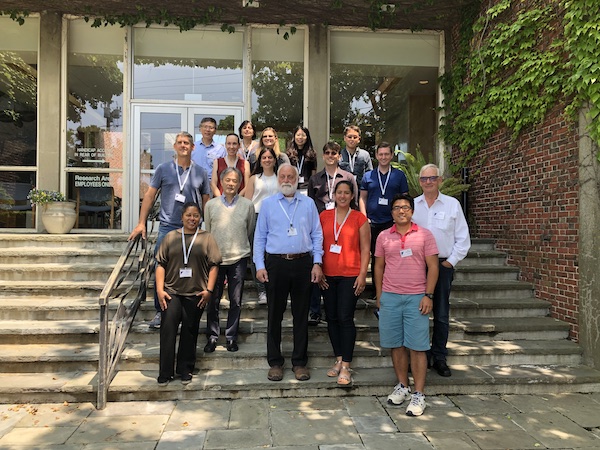
The first of two OCB-funded meetings was held in Woods Hole, MA, June 22-23 by a team of researchers working on identifying the largest remaining challenges for internal consistency of the carbonate system in seawater. Discussion primarily focused on disagreements between measured and calculated seawater pH and on proposing efforts aimed at identifying the source of the disagreements. An inter-laboratory comparison experiment is being planned for the beginning of 2020 that will isolate aspects of seawater pH measurement practices, for example by providing a common purified dye for measurements by all groups and a reference material that is more strongly buffered and less strongly temperature sensitive than alternatives. Other major topics of debate included:
- the need for standard distributable purified m-Cresol purple dye,
- the feasibility of creating reference materials seawater pH,
- the importance of routine measurement of non-certified reference materials for pH,
- the inter-consistency of the other aspects of the carbonate system (beyond pH),
- the need for additional independent discrete pCO2 measurements,
- the need for a refinement to the boron-to-salinity ratio in seawater,
- the need for a refinement to the carbonate system equilibrium coefficients,
- best practices for inter-cruise comparisons during data product assembly in light of apparent inter-consistency challenges (i.e. recommendations for GLODAPv2),
- many aspects of measurement practices that could be leading to observed or potential inter-consistency challenges (e.g. errors in the pressure dependence of carbonate constants)
- and ways to make certified reference materials and purified (or well-characterized) dyes more broadly and inexpensively available.
The main conclusions of the OCSIF team should be made available following their 2nd meeting planned for summer of 2020. Learn more




